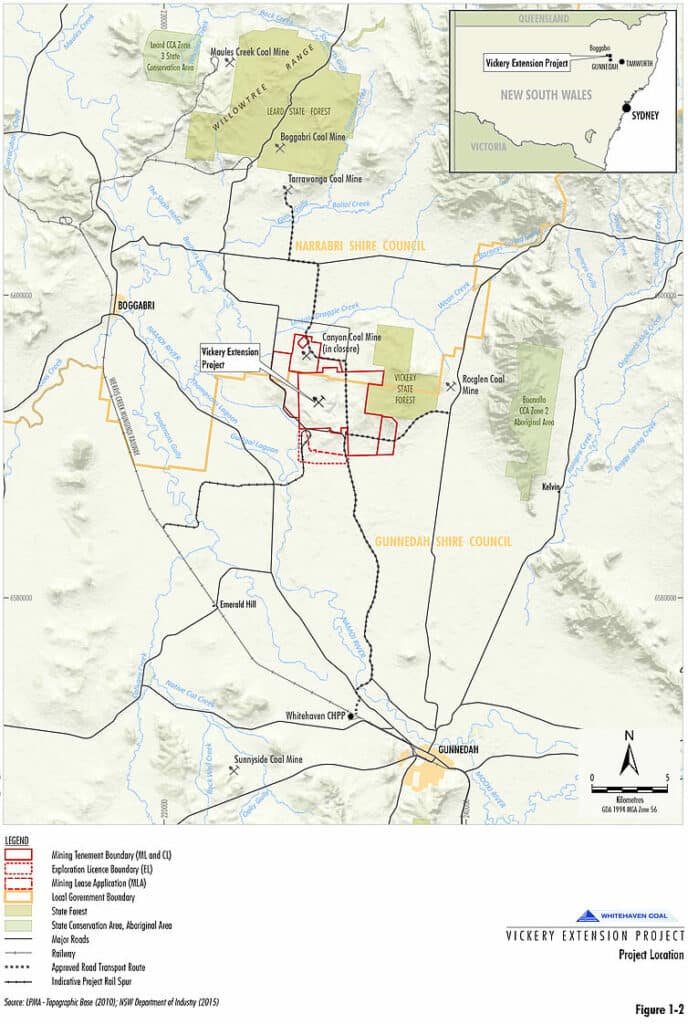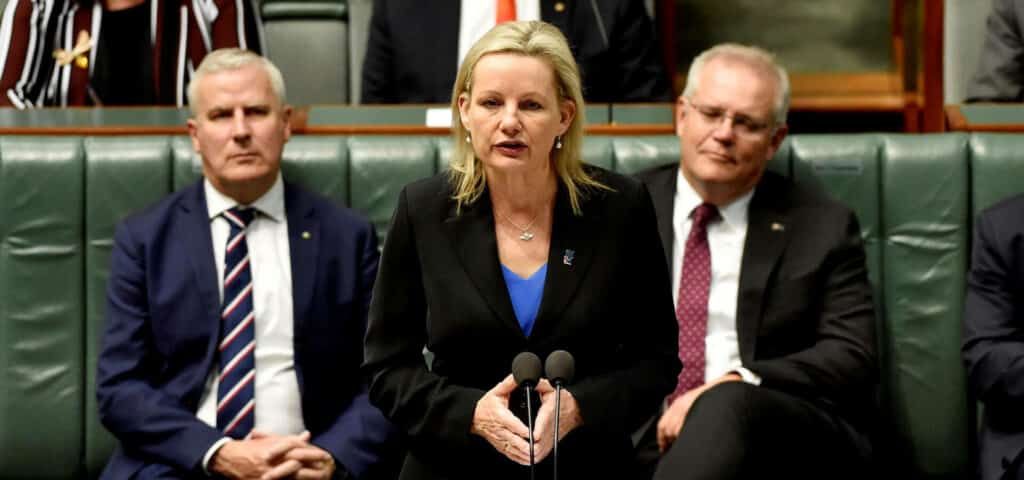On 16 September, Federal Environment Minister Sussan Ley approved the extension of Whitehaven Coal’s Vickery Mine, in what has been called ‘a slap in the face’ by climate activists. The decision comes just a few months after the federal court ruled Ms. Ley had a duty of care to protect young people from the climate crisis.
A group of eight students from the now famous ‘Sharma case’ filed a class action lawsuit against Ms. Ley over the Vickery extension. While the court did not grant an injunction, it ruled the minister had a duty of care to not act in a way that would cause harm to young people.
This decision was globally lauded as ‘amazing’ and was expected to have significant consequences. Ms. Ley has now done her best to disabuse the public of such hopes.
The Whitehaven Extension project would construct an open-cut coalmine near Gunnedah, and is projected to extract 168 million tonnes of coal over a twenty-five-year period.
Whitehaven Coal has claimed the mine would generate 950 jobs and deliver $1.2 billion in economic benefit to NSW. It has also stated the coal produced by the mine would help lower greenhouse gas emissions.

The decision to approve the mine expansion has been widely condemned as a ‘betrayal’. “In approving the mine, Minister Ley has turned her back on the federal court, the international scientific consensus on climate change, and the children and young people of Australia,” said one of the students involved in the Sharma case.
This is the second coal mining project Ms. Ley has approved in the past two weeks. The other was an expansion for a coal mine near Wollongong in early September.
In a statement of reasons, Ley wrote that she found the project unlikely to lead to an increase in global average surface temperatures. The same justification was given in approving the Wollongong mine.

This kind of reasoning misses the broader point, and continues the government’s pattern of wilful ignorance of the urgent need to switch to renewables. Every coal mining project the government approves perpetuates our reliance on coal and ignores Australia’s duty to make a large-scale policy shift in the direction of sustainability.
Many have pointed to the upcoming Glasgow Summit where Australia will be under further pressure to announce tougher emissions reduction targets. The decision to expand coal mining seems even more bizarre in such a context.
These concerns have also been reflected in speeches submitted for the Raise Our Voice in Parliament campaign. The initiative will have forty federal MPs from across the political spectrum giving up a speaking slot in October to deliver chosen speeches by young people on their vision of Australia’s future. Climate change has featured prominently in many submissions.
This new initiative is fantastic news, but the Whitehaven decision sends mixed messages.
Young people have already been campaigning for more climate change reform for years. There have been tens of protests, petitions and now even a court case. With the Environment Minister’s approval of mining projects left and right even after legal intervention, how can young people trust that the government will actually act on anything they bring to parliament?
You can follow Maddie’s journalism journey on Twitter.
Cover photo by Albert Hyseni on Unsplash